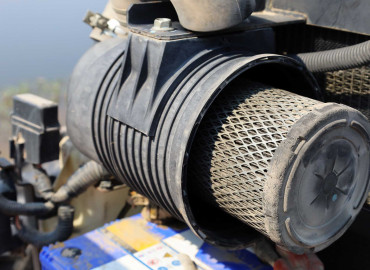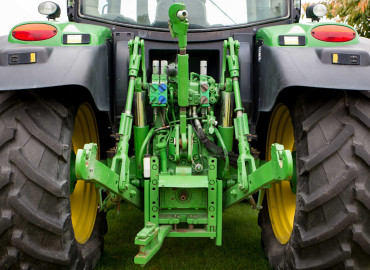Tractors are considered the backbone of agriculture, working intensely every day in fields, farms, and gardens to assist farmers. To ensure these powerful machines operate efficiently and do not strain the farmer's budget, fuel efficiency is crucial.
Importance of Fuel Efficiency
With rising fuel prices and growing environmental concerns, achieving fuel efficiency in tractors is vital for farmers. Improving fuel efficiency not only reduces costs but also helps protect the environment. Reduced fuel consumption means lower carbon emissions, which contributes to a healthier environment in the long run.
Regular Maintenance and Checks
Regular maintenance is key to ensuring fuel efficiency in tractors. Essential components such as filters, oils, tires, and the engine need to be regularly checked and maintained. Dirty air filters can cause the engine to consume more fuel. Therefore, you should ensure filters are clean. Similarly, low or dirty oil can negatively affect engine performance and increase fuel consumption. Timely oil changes are important.
Tire Pressures
Correct tire pressure is an easy yet effective way to enhance fuel efficiency. Low tire pressure causes the tractor to work harder, which increases fuel consumption. Ensure tire pressures are at the levels recommended by the manufacturer and check them regularly.
Weight Management
Carrying loads beyond the tractor's capacity negatively impacts fuel efficiency. Avoid unnecessary weights and only carry essential equipment. Heavy equipment and excess loads cause the tractor to use more fuel. Optimize your loads and lighten your tractor.
Optimal Working Speed
Tractors typically achieve maximum fuel efficiency at certain speeds. Operating at the ideal speed minimizes fuel consumption. Ensure your tractor operates within the manufacturer's recommended speed ranges. Driving too slowly or too quickly can reduce engine efficiency and increase fuel consumption.
Using The Proper Equipment
The equipment used with the tractor also significantly affects fuel efficiency. Old or poorly maintained equipment can cause the tractor to work harder and consume more fuel. Regularly check and maintain your equipment. Additionally, use equipment that matches your tractor's power. Over-sized or undersized equipment can increase fuel consumption.
GPS and Precision Agriculture Technologies
Utilizing modern technology in agriculture can greatly enhance fuel efficiency. GPS and precision agriculture technologies help tractors work more efficiently. With GPS, you can track the paths your tractor follows and avoid unnecessary overlaps. Precision agriculture technologies enable more accurate fertilization and spraying, leading to fuel savings.
Training and Awareness
Educating and training farmers on tractor usage is a crucial step in improving fuel efficiency. Tractor operators should be trained in fuel-saving methods and efficient usage techniques. An informed tractor operator can significantly reduce fuel consumption.
In summary, achieving fuel efficiency in tractors provides significant economic and environmental benefits for farmers. Simple yet effective methods, such as regular maintenance, correct tire pressure, and optimal working speeds, can minimize fuel consumption. Use your tractors efficiently and enjoy the benefits of fuel savings!
 en
en  tr
tr 






























